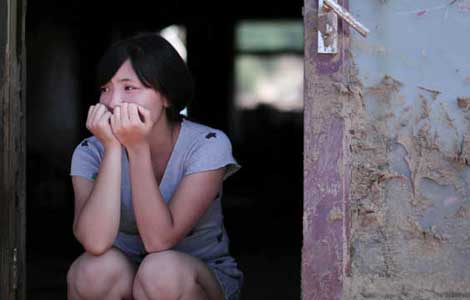China urges US flexibility on N. Korea
Updated: 2013-08-21 11:03
By Chen Weihua in Washington and Zhou Wa in Beijing (China Daily)
|
||||||||
China is urging the United States be more flexible and grasp the opportunity to find a diplomatic solution to the nuclear issue regarding the Democratic People's Republic of Korea.
The DPRK nuclear program was raised as a key concern by US Defense Secretary Chuck Hagel and US National Security Advisor Susan Rice when they met Chinese Minister of Defense Chang Wanquan in Washington on Monday.
Tensions on the Korean Peninsula have eased lately after months of escalation following the DPRK's third nuclear test in February. The US dispatched B-2 stealth bombers and the aircraft USS Nimitz to the region and the DPRK threatened "all out war, a nuclear war".
A flurry of subsequent diplomatic trips by China, the US and the DPRK in April and May have temporarily defused the crisis. Those included trips to China by Secretary of State John Kerry and Chairman of the Joint Chiefs of Staff Martin Dempsey in April and a visit to the US by Wu Dawei, China's special envoy for the Korean Peninsula. The DPRK was also a key topic when Chinese President Xi Jinping and US President Barack Obama met in Sunnylands, California, in early June.
Guan Youfei, director of foreign affairs of the Ministry of Defense, said in Washington on Tuesday that the Chinese side has mentioned to the US that frequent US joint military drills targeting the Korean Peninsula are not conducive to finding a solution to the nuclear issue.
Guan indicated that China has worked hard behind the scenes to help defuse the tensions, saying that much of China's painstaking efforts have not actually been reported in the media or made public.
"In fact, China, a neighbor of the DPRK, is more concerned about the DPRK's nuclear program than anybody else," Guan said.
The DPRK, however, is a sovereign nation and does not have to listen to China on every issue, according to Guan.
Hagel made similar statements on Monday when asked why the US did not intervene more in Egypt. Hagel said that the US is not without influence there, but Egypt is a sovereign nation.
In the past months, the DPRK said it was willing to resume dialogue on its nuclear program.
The US has welcomed the overture but set as a precondition that the DPRK must first comply with UN resolutions and honor its previous promise to abandon its nuclear program.
The US has long accused the DPRK of lacking sincerity and using the resumption of talks as leverage in exchange for economic aid.
Guan said that China also suggested the US not set preconditions, saying that there is hope only when two parties start talking to each other.
The deep animosity between the US and the DPRK, and lack of contact between them, have long been regarded as a hurdle to finding a diplomatic solution.
The DPRK - which former US President George W. Bush called part of an "axis of evil" - has said that its nuclear program is to counter the threat from the US.
China has insisted on the denuclearization of the Korean Peninsula, but wanted the issue to be resolved peacefully without endangering the stability in the region.
US State Department special envoy for human rights in the DPRK Robert King is paying a visit to China to discus DPRK-related issues.
The Korean Peninsula has remained a hot spot despite the reduced tensions.
On Tuesday, the DPRK took a verbal swipe at the Republic of Korea, saying that remarks made by ROK President Park Geun-hye on the eve of her country's joint military drill with the US were unnecessarily warlike and had harmed the atmosphere of reconciliation on the peninsula.
Pyongyang objected to comments made by Park to her National Security Council on Monday, which met as the annual joint US-ROK exercise began.
She urged ROK officials to get "combat-ready, regardless of change in south-north relations and the situation in surrounding areas" and said "it is necessary to get ready for a war to ensure peace", the Yonhap news agency said.
A spokesman for the DPRK's Committee for the Peaceful Reunification of Korea denounced Park's remarks in a statement on Tuesday, saying the comments "chill the hard-won atmosphere of dialogue between the north and the south and go against the trend of the times for peace".
He urged Seoul authorities not to misjudge the sincerity and patience of Pyongyang.
Contact the writer at chenweihua@chinadailyusa.com, zhouwa@chinadaily.com.cn
(China Daily USA 08/21/2013 page1)
Most Viewed
Editor's Picks

|

|

|

|

|

|
Today's Top News
Luxury imports may face fewer big-ticket payoff days
Joint sea drill shows improved relations
UN to probe alleged chemical attack
Bo insists he did not abuse power
Newly born panda cub at Washington zoo doing fine
Market regulators need to fix loopholes
Singapore PM aims to cement relations
Experts call for details on rumor cases
US Weekly

|

|















